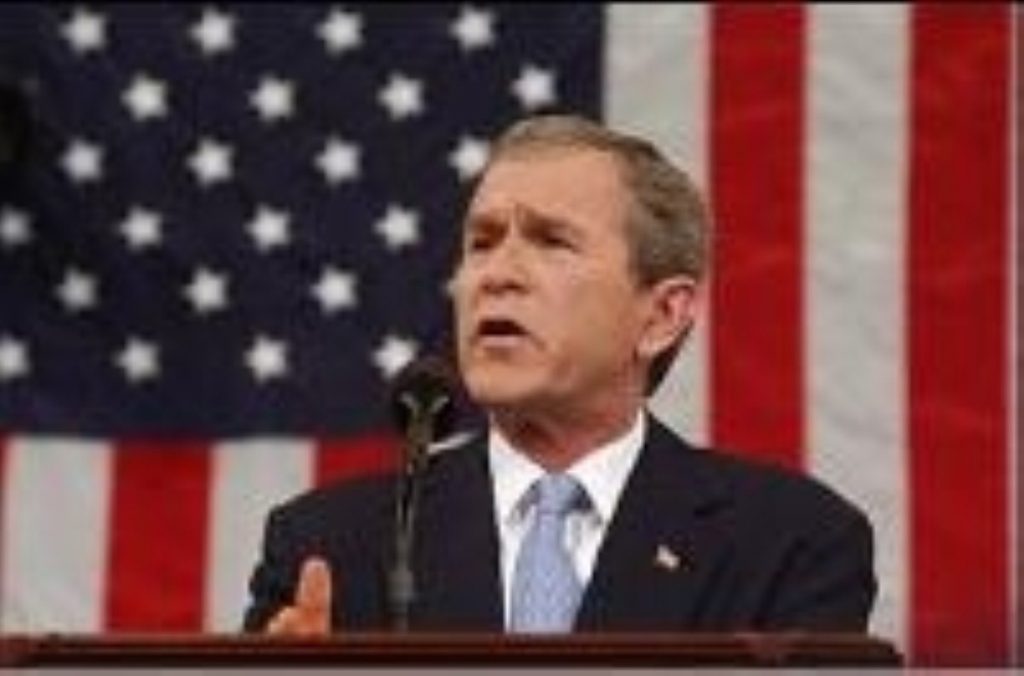Bush’s defiant stance receives cool response at UN
President Bush addressed the United Nations General Assembly on Tuesday with a lengthy speech in which he asked the assembly for help in the reconstruction of Iraq.
George W Bush declared that it was time to set aside past differences over the US-led invasion and insisted that the process of transferring power to the Iraqi people must necessarily be taken slowly. He said he wanted a process that was ‘reached by orderly democratic means’.
‘This process must unfold according to the needs of Iraqis – neither hurried nor delayed by the wishes of other parties,” Mr Bush told the assembly in New York.’
This call may have been a direct response to French President Jacques Chirac, who had proposed a two-stage plan, starting with a symbolic transfer of sovereignty to the Iraqi Governing Council before completing the transfer of real power over six to nine months.


There was a less than enthusiastic response from those gathered to hear the President speak as the President defended the coalition’s invasion of Iraq.
‘Because a coalition of nations acted to defend the peace – and the credibility of the United Nations – Iraq is free and today we are joined by representatives of a liberated country,’ he told the General Assembly.
The US military is becoming increasingly concerned by escalating attacks by guerrillas against soldiers based in Iraq and spiralling costs to continue to maintain a presence in the region. This has increased pressure to gain new partners and America is seeking a Security Council Resolution authorising the deployment of multinational peacekeeping forces to Iraq, and approving the creation of the US-appointed Iraqi Governing Council.
However, the American President rejected calls for the UN to play a greater role in the administration of Iraq, saying, ‘As in the aftermath of other conflicts, the United Nations should assist in developing a constitution, training civil servants, and conducting free and fair elections.’
Mr Bush will spend two days in New York, during which time he will hold bilateral meetings with Mr Chirac and German Chancellor Gerhard Schroeder, two of the leaders most vocally opposed the US-led invasion of Iraq.
Just before Mr Bush took the stage, The UN Secretary General launched an uncharacteristically critical attack on the United States.
Mr Annan declared that America’s policy of pre-emptive military action posed a direct threat to the UN and world order. He said: ‘My concern is that, if it were to be adopted, it could set precedents that resulted in the proliferation of unilateral and lawless use of force.’
He warned that the coalition had placed the 50-year history of the UN under threat by side-stepping it in order to invade Iraq.
The Bush administration and the United Nations are at odds over where to proceed next over Iraq. Many UN member states want the organisation to take control of the Gulf state, while America wants UN assistance, whilst retaining overall control.











